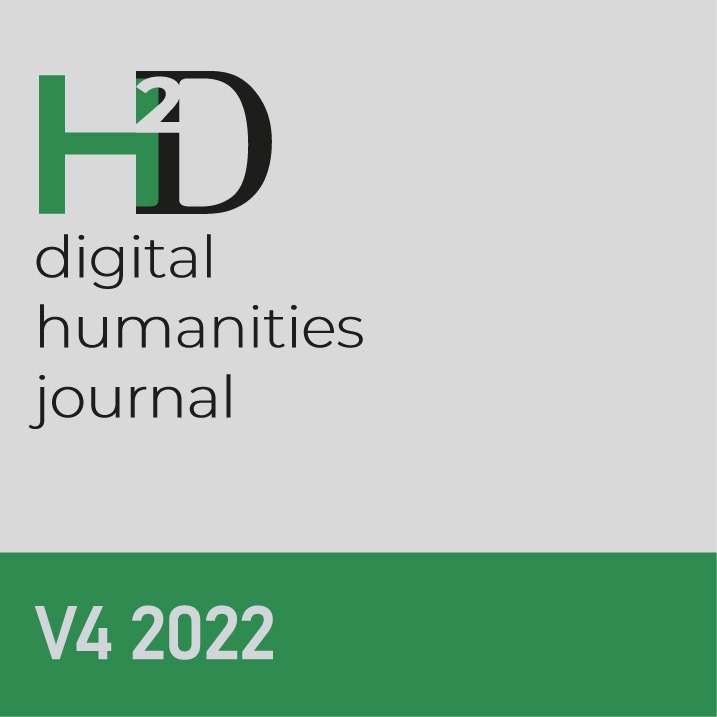A learning scenario about the Portuguese Participation in World War I through History and Citizenship and Development
DOI:
https://doi.org/10.21814/h2d.3531Keywords:
history, citizenship and development, digital skills, World War IAbstract
This paper presents a cross-sectional teaching activity on Portuguese participation in World War I for 9th grade students. This activity will be developed in classes of History and Citizenship and Development, within an Autonomy and Curricular Flexibity Project. We intend to alter the current school reality, where the number of hours assigned to History compromises the development of some programmatic contents. However, a cross-sectional and integrated approach to class projects allows to fille some gaps. The design of the activity takes into account the importance of developing digital skills, the essential learning of the disciplines involved and the skills foreseen in the Profile of the Student Leaving Compulsory Education and has as main objectives: i) the development of a historical awareness, ii) the development of competencies in the area of critical and argumentative thinking, iii) the exercise of a humanist, active and participatory citizenship in society. This approach allows a dynamic students participation as active subjects in the (re)construction of knowledge.
Downloads
References
Alves, L. M. (2015). A Malta das Trincheiras- entre a vivência, a memória e a História. In L. A. Alves, G. M. Pereira, J. F. Alves & M. C. Meireles (Eds.), A Grande Guerra (1914-1918): Problemáticas e representações (pp. 197–214). CITCEM.
Bourdieu, P. (2001). O Poder simbólico. Difel.
Connel, R. W., & Messerschmidt, J. W. (2013). Masculinidade hegemónica: Repensando o conceito. Estudos Feministas, 21, 244–245. DOI: https://doi.org/10.1590/S0104-026X2013000100014
Chartier, R. (2002). A história cultural entre prática e representações. Difel.
Ferreira, M. (1921). João Ninguém. Soldado da Grande Guerra. Impressões humorísticas do C.E.P. Livraria Portugal-Brasil.
Foucault, M. (1984). Microfísica do poder (4.ª ed.). Edições Graal.
Friedberg, E. (1995). O poder e a regra. Instituto Piaget.
Junta Nacional de Propaganda Patriótica. (1916). Ao Povo Portuguez. A Guerra. Maio de 1916. Imprensa Nacional. https://purl.pt/26963
Marques, I. P. (2016). Das trincheiras, com saudade. A vida quotidiana dos militares portugueses na Primeira Guerra Mundial. A Esfera dos Livros.
Martins, G. O., Gomes, C. S., Brocardo, J. L., Pedroso, J. V., Acosta Carrillo, J. L., Ucha, L. M., Encarnação, M., Horta, M. J., Calçada, M. T., Nery, R. V., Rodrigues, S. V. (2017). Perfil dos alunos à saída da escolaridade obrigatória. Editorial do Ministério da Educação e Ciência. https://dge.mec.pt/sites/default/files/Curriculo/Projeto_Autonomia_e_Flexibilidade/perfil_dos_alunos.pdf
Monteiro, N. (2016). Mulheres portuguesas em tempo de guerra (1914-1918). Nação e Defesa, 145, 109–121. https://www.idn.gov.pt/publicacoes/nacaodefesa/textointegral/NeD145.pdf
Nora, P. (1993). Entre memória e história. A problemática dos lugares. Projeto História, 10, 7–28.
Pereira, M. P. (2021). Disciplinar o corpo e os afetos das professoras primárias (1933–1955). In Livro de Actas XIV Congresso Iberoamericano de História da Educação CIHELA 2021 (pp. 2063–2078). Associação de História da Educação de Portugal - HISTEDUP.
Pereira, M. P. (2017). A Escola Portuguesa ao serviço da Nação: discursos e práticas de orientação e disciplina do professorado primário (1926–1956) [Tese de Doutoramento, Universidade Aberta]. Repositório Aberto Universidade Aberta. http://hdl.handle.net/10400.2/6785
Pereira, M. P. (1994). A Associação Comercial de Lisboa e a grande burguesia comercial da praça de Lisboa [Tese de Mestrado, Faculdade de Ciências Sociais e Humanas da Universidade Nova de Lisboa].
Sardica, J. M. (2012). O poder visível: D. Carlos, a imprensa e a opinião pública no final da monarquia. Análise Social, 47(203), 344–368.
Scott. J. W. (1986). Gender: A useful category of historical analysis. The American Historical Review, 91(5), 1053–1075. https://doi.org/10.1086/ahr/91.5.1053 DOI: https://doi.org/10.2307/1864376
Telo, A. J. (2014). Um enquadramento global para uma guerra global. Nação e Defesa,139, 8–33. https://www.idn.gov.pt/publicacoes/nacaodefesa/textointegral/NeD139.pdf
Verón, E. (1978). Sémiosis de l'idéologie et du pouvoir. Communications, 28(8), 7–20. https://www.persee.fr/doc/comm_0588-8018_1978_num_28_1_1416 DOI: https://doi.org/10.3406/comm.1978.1416
Downloads
Published
How to Cite
Issue
Section
License
Copyright (c) 2022 Maria Paula Pereira

This work is licensed under a Creative Commons Attribution 4.0 International License.






